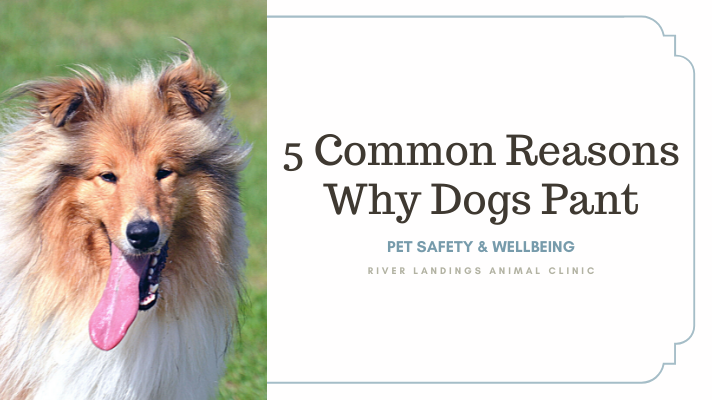Common Reasons for Panting
Your dog or puppy may be panting for one of these five reasons:
Heat & Heatstroke
Panting is a natural behavior observed in happy and active dogs. Unlike humans, dogs can't sweat, so panting serves as their primary means of regulating body temperature.
Panting enables a dog to quickly inhale, moisten, and then exhale air, promoting the evaporation of moisture from their nose and lungs. This internal cooling mechanism helps lower their body temperature.
During panting, dogs can lose a significant amount of water in a short time, making it essential to ensure your dog has access to ample fresh water on hot days.
Normal panting can be quite vigorous, but the intensity should correspond to the ambient temperature or the level of activity your dog is engaged in.
Overheating or heatstroke can lead to excessive panting in dogs, potentially resulting in dehydration and even death if left untreated. Immediate veterinary attention is necessary when dealing with heatstroke.
Dogs suffering from overheating will pant heavily and exhibit signs of discomfort. They may appear restless, lie down flat, or become unresponsive as their focus shifts towards cooling down.
To prevent heatstroke on hot summer days or during outdoor activities like hiking, take frequent breaks, seek shade, and provide your dog with sufficient water. Avoid exposing your dog to high temperatures or extended periods of heat, particularly if they have short snouts, as they are more susceptible to heatstroke.
Excitement
Dogs may also engage in panting when they experience excitement. Panting serves as a typical behavioral reaction to exciting events, such as encountering new individuals or receiving a treat. This form of panting tends to be swift and superficial, often accompanied by whining.
Stress
Dogs often pant and whine when stressed, much like when they're excited. Pay attention to their body language, such as wide, wary eyes or yawning, as these are common indicators of stress. Evaluate the situation and take steps to ease your dog's discomfort and prevent further stress.
Pain
It's crucial to understand that dog panting can be a sign of nausea, discomfort, or pain. To determine if your dog is panting due to pain, your veterinarian can perform a comprehensive examination and may recommend diagnostic tests.
Medicine
Some medications, particularly prednisone or other steroids, can lead to heightened panting in dogs, even in the absence of heat, excitement, or stress. This is a common side effect, so if your dog's panting becomes excessive, it's advisable to consult your veterinarian.
NEVER leave your dog in a hot car. The interior of a car can reach scorching temperatures and threaten your dog’s life in as little as 10-15 minutes, even on mild days. Run the air conditioner or leave your friend at home when running errands.
If you suspect your pet is sick, call your vet immediately.
For health-related questions, always consult your veterinarian, as they have examined your pet, know the pet's health history, and can make the best recommendations for your pet.
Hear From Us Again
Don't forget to subscribe to our email newsletter for more recipes, articles, and clinic updates delivered straight to your e-mail inbox.
Related Categories:

